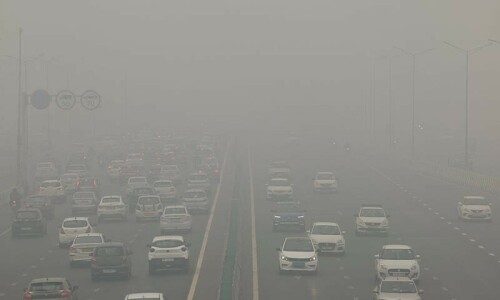BEIRUT: The article on Iran’s semi-official Fars news agency appeared routine: the minister of roads and urban development said the ministry does not have a contract with construction firm Khatam al Anbia to complete a major highway heading north from Tehran.
Two things made it stand out: Khatam al Anbia is one of the biggest companies controlled by the Islamic Revolutionary Guards Corps (IRGC) and company head Ebadollah Abdullahi had said just three days earlier that it did have the contract.
The December report was one of a series of signs that President Hassan Rouhani, who came into office last August, issuing the political momentum from a thaw with the West over its nuclear programme to roll back the Guard’s economic influence.
Existing government contracts with the Guards have been challenged by ministers and some have been rebuffed.
Senior commanders in the Guards, established 35 years ago this week to defend the clerical religious system that replaced the Western-backed Shah, have criticised the nuclear talks but been more muted over the curbs on their economic interests.
Major General Mohammad Ali Jafari said in December that Ahmadinejad’s government had insisted the Guards get involved in the economy.
“But we have told Mr Rouhani that if he feels the private sector can fulfil these projects, the Guards are ready to pull aside and even cancel its contracts,” he said, according to the Iranian Students’ News Agency.
In the same speech, Jafari lashed out at the nuclear negotiations, saying Iran had lost much and gained little and took aim more directly at Rouhani.
“The most important arena of threat against the Islamic revolution — and the Guards have a duty to protect the gains of the revolution — is in the political arena. And the Guards can’t remain silent in the face of that,” Fars quoted him as saying.
The interim nuclear deal agreed with the West in November threatens the ideological basis of the power of the Guards, set up to counterbalance the military and protect the 1979 Islamic revolution from external and internal interference.
The nuclear programme, which Guard commanders call a source of national pride, is being curbed in return for sanctions relief and a diplomatic thaw with the country the Guards have long said is their biggest enemy, the US.
Despite the criticism from the top, the Guards are not a monolithic organisation and there are elements within it which have reacted more pragmatically. At least one senior commander has spoken publicly in support of the nuclear deal.
For now, backing for the nuclear talks from Supreme Leader Ayatollah Ali Khamenei, the highest power in the country which the Guards, at least in public, must defer to, has kept the hard-line elements within their ranks in check.
The Revolutionary Guards control broad sections of the economy and are also involved in political and cultural activities.
During former president Ahmadinejad’s two terms in office, the Guards expanded their economic interests as sanctions ramped up. Now, Rouhani is using the unique opening presented by the nuclear deal to decrease their economic presence and, as a result, their broader influence in the country.
Ali Alfoneh, a senior fellow at the Foundation For Defense of Democracies and an expert on the Revolutionary Guards, said the government used two main arguments to cancel the contracts.
“The government can’t afford the contracts, and the state is no longer subjected to the sanctions regime and there is no need [for a] state of emergency where IRGC participation in the projects is needed,” Alfoneh said by email.
While Rouhani’s use of the nuclear negotiations to decrease the economic influence of the Guards has heightened tensions, the ongoing talks over the country’s nuclear programme are more contentious for the Guards, analysts say.
Some senior Guard commanders have pointed out that stopping uranium enrichment altogether could be a slippery slope toward the dismantling of the country’s nuclear programme.
They maintain that the country’s nuclear programme is peaceful. They argue that enrichment is necessary for medical and energy purposes.
Rouhani has fought back: in a speech last Tuesday, he said that only a few “ignorant” people have been speaking out against the deal and asked for academics to express their support publicly.—Reuters














































Dear visitor, the comments section is undergoing an overhaul and will return soon.